in-store offers
Winter Sale!
BFI
Winter’s here, and we have a massive sale on the BFI catalogue. Enjoy discounts on Blu-ray, DVD, and 4K UHD until January 28, 2024!

The British Film Institute (BFI), a cinematic sanctuary nestled on the banks of the Thames, is more than an institution; it is a guardian of celluloid dreams and a curator of the ever-evolving tapestry of British cinema. Since its inception in 1933, the BFI has been a lighthouse in the mist, illuminating the path to understanding and appreciating the art of film. The BFI takes a discerning approach to its home entertainment releases, often selecting films of historical, cultural, or artistic significance. These carefully curated collections showcase the depth and breadth of British and international cinema, providing cinephiles with an opportunity to explore cinematic gems that might not be readily available elsewhere. Their commitment to releasing films on physical media aligns with its dedication to preserving and promoting the cultural heritage of cinema.
Let’s delve into recent BFI releases that are in our sale for the first time ever…
 Pretty Red Dress
Pretty Red Dress
Travis has just been released from prison and it quickly becomes apparent that everything has changed while he’s been gone. While girlfriend Candice is on the up and auditioning to star in a musical, teenage daughter Kenisha is struggling in school and her relationship with her mum is tense. When Travis buys Candice her dream dress for an audition, rather than smoothing over the family’s problems, it ends up creating even more… As secrets and desires left unsaid threaten to spill out, Travis is forced to re- examine who he is and how he wants to be perceived in the world.
A debut feature from writer and director Dionne Edwards, Pretty Red Dress features breakthrough performances from Natey Jones and newcomer Temilola Olatunbosun, as well as the chart-topping singer and West End actor Alexandra Burke in her first film role.
-
Presented in High Definition
-
Audio commentary by writer and director Dionne Edwards and producer Georgia Goggin
-
Pretty Red Dress Q&A (2023, 23 mins): Dionne Edwards, Georgia Goggin and cast members Temilola Olatunbosun, Natey Jones and Alexandra Burke discuss Pretty Red Dress with Caleb Femi
-
Dressing Up(2023, 14 mins): Dionne Edwards looks back on Pretty Red Dress discussing some of its themes and influences
-
Picking Up the Thread (2023, 27 mins): Georgia Goggin recounts the production history of Pretty Red Dress
-
Starting a Conversation (2022, 3 mins): choreographer and movement director Johannes Radebe discusses his role on the film
-
Sundance Directors Lab scenes (2019, 8 mins): during the Sundance Directors Lab Dionne Edwards shot scenes from Pretty Red Dress with actors Eric Kofi Abrefa, Riann Steele and Aria Harrell taking the lead roles
 I am Weekender
I am Weekender
Initially banned on its release, Weekender –the film of Flowered Up’s classic acid house cri de cœur –is today hailed as one of the most innovative music films ever made. Now WIZ’s pioneering meditation on the British rave experience is celebrated in I Am Weekender, Chloé Raunet’s documentary about the film’s making, impact and legacy, with contributions from Irvine Welsh, Jeremy Deller, Lynne Ramsay, Bobby Gillespie, Clive Langer, Mark Moore, Róisín Murphy, Annie Nightingale, Shaun Ryder, David Holmes, Roy the Roach and more. Once described as ‘the Citizen Kane of acid house’, Weekender, the film that started it all, is also included here in a brand new 2K restoration.
-
Weekender (1992, 19 mins): the film itself, remastered from the original camera negative and presented in a new 2K restoration
-
New audio commentary by director WIZ, recorded and produced by Adam Dunlop
-
Take It (1991, 4 mins): Flowered Up promotional video directed by WIZ
-
Phobia (1990, 4 mins): Flowered Uppromotional video directed by Paul Cannell
-
It’s On (1990, 4 mins): Flowered Up promotional video directed by Pinko
-
Raise (1990, 4 mins): Bocca Juniors promotional video directed by WIZ and featuring Anna Haigh
-
Nish (1991, 4 mins): a short film about early acid house culture by WIZ
-
Turn It Up (2023, 27 mins):Chloé Raunet discusses the making of her documentary in this newly recorded interview
-
Rushes Revisited (Adam Dunlop, 2023, 9 mins): four sketches made from unseen rushes featuring previously unheard isolated tracks from the original recordings
 Enys Men
Enys Men
From visionary filmmaker Mark Jenkin, the Bafta award-winning director of Bait. Enys Men is a mind-bending Cornish folk horror set in 1973 that unfolds on an uninhabited island off the Cornish coast. A wildlife volunteer’s (Mary Woodvine) daily observations of a rare flower take a dark turn into the strange and metaphysical, forcing both her and viewers to question what is real and what is nightmare. Is the landscape not only alive but sentient? Shot by Jenkin on grainy 16mm colour film stock and with his trademark post-synched sound, the form feels both innovative and authentic to the period. Filmed on location around the disused tin mines of West Penwith, it is also an ode to Cornwall’s rich folklore and natural beauty.
-
Presented in High Definition and Standard Definition
-
Audio commentary with director Mark Jenkin and film critic Mark Kermode
-
Audio Diaries (2020, 106 mins, audio only): Mark Jenkins’s lockdown diaries
-
On-stage interview with Mark Jenkin and Mary Woodvine by film critic Mark Kermode at BFI Southbank (2022, 29 mins)
-
Film Sounds with Mark Jenkin and Peter Strickland (2022, 86 mins): the director of Enys Men in conversation with filmmaker Peter Strickland (Berberian Sound Studio, Flux Gourmet) as they discuss the subtleties of sound in film
-
Recording the Score (2022, 6 mins): a short clip of Mark Jenkin at work
-
Haunters of the Deep (1984, 61 mins): a Children’s Film Foundation adventure that shares many of the same West Cornwall locations as Enys Men, and made quite an impression on its director
-
The Duchy of Cornwall (1938, 15 mins): a rapid survey of early Cornish history looks at the county’s language, landscape and industries
-
Trailer
 La Règle du jeu
La Règle du jeu
On the surface, Jean Renoir’s brilliant satire is a series of interlinked romantic intrigues that take place during a weekend shooting party in a country château. But the film is, in fact, a study of the corruption and decay at the top of French society on the eve of the Second World War.
Denigrated by the public, vilified by the critics, re-cut at the insistence of its producers and ultimately banned by the French government as demoralising and unpatriotic, La Règle du jeu is today widely recognised as one of the greatest films ever made.
-
Restored in 4K in 2021 by La Cinémathèque française and Les Grands Films Classiques and presented on Blu-ray
-
Newly commissioned commentary by film writers David Jenkins and Trevor Johnston
-
Image par image: La Règle du jeu (1987, 42 mins): Jean Douchet and Pierre Oscar Lévy provide a detailed analysis of La Règle du jeu
-
Leslie Caron on La Règle du jeu (2016, 18 mins): the actor introduces Renoir’s classic as part of the Screen Epiphanies series at BFI Southbank
-
La Vie est à nous (1936, 64 mins): French Communist Party election film depicting political turmoil and the threat of fascism, with creative input from Jean Renoir and Henri Cartier-Bresson, among others
-
Pheasant Shooting (1913, 1 min): newsreel item on the start of the shooting season in a Norfolk game reserve
-
Society on the Moors (1921, 1 min): newsreel footage of Lord and Lady Savile’s shooting party on the Yorkshire Moors near Hebden Bridge
-
Stills gallery
 Dance Craze
Dance Craze
The Dance Craze film, shot throughout 1980 and released in cinemas the following year, brilliantly captures the cultural phenomenon that was the 2Tone movement and represents an important social document of the times. Directed by Joe Massot (The Song Remains the Same) and filmed by Bafta award-winning cinematographer Joe Dunton, it showcases the very best of the British Ska phenomenon, with exclusive live performances from The Specials, Madness, The Selecter, The Beat, Bad Manners and The Bodysnatchers. Newly remastered in 4K from original film materials, Dance Craze is presented here by the BFI and Chrysalis Records on Blu-ray and DVD for the first time, more than 40 years on from its theatrical release.
-
Newly remastered from original 70mm materials and approved by cinematographer Joe Dunton
-
Rudies Come Back (1980, 34 mins): in this episode of the long-running BBC series Arena, music journalist Adrian Thrills explores the rise of 2Tone. Featuring interviews with The Specials and The Selecter
-
Outtakes (1980, 22 mins): a collection of outtakes and alternative versions features footage that was ultimately left out of the final cut of Dance Craze, but has been recovered from various sources
-
Restoration demo (2023, 2 mins): a before and after look at the restoration of Dance Craze
-
Original stereo and surround sound mixes by Clive Langer and Alan Winstanley remastered for this release, plus a new Dolby Atmos surround sound mix approved by Jerry Dammers
-
Newly created English subtitles for the Deaf and partial hearing
Nil By Mouth
Gary Oldman revealed himself as a filmmaker of uncompromising talent with Nil by Mouth, his debut and so far only directorial feature. Set on a council estate in New Cross, south east London (the area where Oldman himself grew up), a dysfunctional family encounters domestic violence, drunkenness, drug addiction and petty crime. Featuring career-best performances from Kathy Burke (winner of Best Actress at Cannes), Ray Winstone and Charlie Creed-Miles, all superbly supported by Laila Morse and Jamie Foreman, Nil by Mouth was awarded Best British Film and Best Original Screenplay at the 1998 Bafta awards.
This intensely powerful and emotional landmark of British cinema has been remastered in 4K for its 25th anniversary by the BFI National Archive, and this release is the first time on Blu-ray anywhere in the world.
-
Newly remastered in 4K by the BFI National Archive
-
Newly recorded audio commentary by writer and director Gary Oldman and producer Douglas Urbanski
-
Interview with Gary Oldman (2022): the acclaimed actor in conversation with film Geoff Andrew
-
Interview with Ray Winstone (2022): the actor discusses his role in the film with Geoff Andrew
-
Fearing the Worst: Charlie Creed-Miles on Nil by Mouth (2022, 28 mins): the actor recalls the making of Nil by Mouth
-
People Were Queuing For Any Role: Sue Jones on Nil by Mouth (2022, 16 mins): the film’s casting director recalls her work on the film
-
80-page book featuring new writing by Douglas Urbanski, Kat Ellinger, Philip Kemp, and Jason Wood and archive extracts from Time Out and Sight & Sound. Also includes contributions on selected extras by Gary Oldman and never before seen original storyboards from the film
 The Driver’s Seat
The Driver’s Seat
Elizabeth Taylor stars as a troubled woman who, upon arriving in Rome, finds a city fragmented by autocratic law, leftist violence and her own increasingly unhinged mission to find the most dangerous liaison of all.
Never before released in the UK, The Driver’s Seat (aka Identikit) remains the most obscure, bizarre and wildly misunderstood film of Taylor’s illustrious career.Adapted froman unnerving novella by Muriel Spark (The Prime of Miss Jean Brodie), the film marked a wild step into the unknown for the screen icon, as she cast off the shackles of the US studio system in the shadow of her tumultuous personal life.Co-starring Ian Bannen, Mona Washbourne and Andy Warhol, The Driver’s Seat stunned critics and audiences alike upon its premiere in 1974 but failed to secure a UK release – until now.Directed by Giuseppe PatroniGriffi(‘Tis Pity She’s a Whore) and featuring cinematography by three-time Oscar® winner Vittorio Storaro (Apocalypse Now), this much-sought after cult classic is presented in a new4K restoration by Cineteca di Bologna and Severin Films.
-
Restored in 4K by Cineteca di Bologna and Severin Films and presented in High Definition
-
Introduction By Kier-La Janisse, author of House of Psychotic Women (2022, 6 mins)
-
Audio Commentary with curator and programmer Millie De Chirico (2022)
-
A Lack of Absence (2022, 22 mins): writer and literary historian Chandra Mayor on Muriel Spark and The Driver’s Seat
-
The Driver’s Seat credit sequences (1974, 4 mins)
-
Darling, Do You Love Me? (1968, 4 mins) in a hugely entertaining parody of her media persona, Germaine Greer stars as a terrifyingly amorous woman who pursues a man relentlessly
-
Waiting For… (1970, 11 mins): a young woman embarks on a filmmaking project when some mysterious men give her a camera and tell her to capture her everyday reality
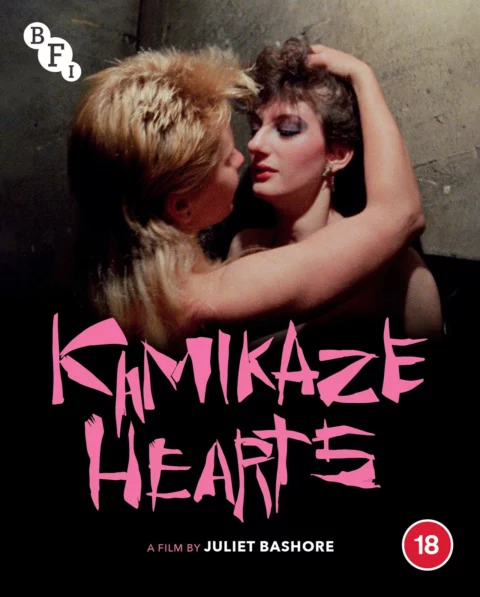
Kamikaze Hearts
Alternately distressing, instructive, contestable, and fascinating, Juliet Bashore’s quasi-documentary plunge into the 1980s porn industry takes an unsparing look at issues of misogyny, drug abuse, and exploitation via the story of two women—the naive newcomer Tigr and her partner, the magnetic, imperious porn veteran Sharon Mitchell — caught in a toxic romance. By turns mesmerizing and unsettling, Kamikaze Hearts is both a fascinating record of pre-gentrification San Francisco’s X-rated underground and an intense, searing love story. The film offers a disturbing glimpse of the modification of bodies, feelings, and lives.
Presented in a new 2K restoration from the original 16mm A/B camera negatives, Kamikaze Hearts has been restored by Kino Lorber in collaboration with the Outfest UCLA Legacy Project at the UCLA Film & Television Archive.
-
Presented in High Definition
-
Audio commentary by director Juliet Bashore, actors Sharon Mitchell, Jon Martin and Howie Gordon, and performance artist Shelly Mars
-
Crash (excerpt): In 1990 Juliet Bashore workshopped a 'fictional' version of Kamikaze Hearts through the American Film Institute. This sketch is one of the outcomes from the AFI project.
-
Interviews (2022, 173 mins): A selection of newly recorded interviews totalling almost three hours with Juliet Bashore, Sharon Mitchell , Annie Sprinkle & Beth Stephens, Susie Bright, Howie Gordon, Jon Martin
-
Original trailer
-
2022 trailer
-
English subtitles for the Deaf and partial hearing (feature only)
 The Juniper Tree
The Juniper Tree
An unsung talent in her lifetime, director, professor and Fulbright scholar Nietzchka Keene’s stark, stunning debut feature The Juniper Tree is loosely based on a Brothers Grimm fairy tale of the same name, and stars Björk in her first feature film performance.
Set in medieval Iceland, The Juniper Tree follows Margit (Björk) and her older sister Katla (Bryndis Petra Bragadottir) as they flee for safety after their mother is burned to death for witchcraft. Finding shelter and protection with Johan (Valdimar Orn Flygenring.), and his resentful young son, Jonas (Geirlaug Sunna Thormar), the sisters help form an impromptu family unit that’s soon strained by Katla’s burgeoning sorcery.
Photographed entirely on location in the stunning landscapes of Iceland in spectacular black-and-white by Randy Sellars, The Juniper Tree is a deeply atmospheric film, evocative of Carl Theodor Dreyer’s Day of Wrath and Ingmar Bergman’s The Virgin Spring, and filled with indelible waking dream sequences (courtesy of legendary experimental filmmaker Pat O’Neill). A potent allegory for misogyny and its attendant tragedies, The Juniper Tree is a major rediscovery for art house audiences.
-
Restored in 4K and presented in High Definition
-
New feature commentary by Icelandic cultural scholar Dr Guðrún D Whitehead
-
Still (1978, 4 mins), Hinterland (1981, 25 mins), Aves (1998, 7 mins): three remastered short films by Nietzchka Keene
-
Video interview with cinematographer Randy Sellars (2019, 29 mins)
-
Archival video interview with Nietzchka Keene (2002, 15 mins)
-
The Witch’s Fiddle (1924, 7 mins): a British folk rarity from the BFI National Archive
-
Iceland – The Land of Fire and Ice (1929) little-seen footage of Iceland from the silent cinema era
 EO
EO
EO, a grey donkey with melancholic eyes and a curious spirit, begins his life as a circus performer before escaping on a trek across the Polish and Italian countryside. During his travels, he encounters an eclectic cast of characters, including a countess, a young Italian priest and a riotous Polish football team. EO’s journey speaks to the world around us, an equine hero boldly pointing out societal ills and serving as warning to the dangers of neglect and inaction, all while on a quest for freedom.
Directed by the veteran Polish director (Deep End, The Shout), EO won the Jury Prize at the 2022 Cannes Film Festival, before being nominated for Best International Feature at the 2023 Academy Awards®.
-
Jerzy Skolimowski & Ewa Piaskowska on the making of EO(2022, 27 mins): director Jerzy Skolimowski and co-writer Ewa Piaskowska discuss the making of EO at the New York Film Festival.
-
Skolimowski A to Ż (2023, 53 mins, audio only): an alphabetical journey through the work of Jerzy Skolimowski with writer Michael Brooke
-
High Rise Donkey (1980, 56 mins): in this Children’s Film Foundation adventure, three children who live in a high-rise tower block try to save a donkey from two small-time crooks
-
The Clown and His Donkey (1910, 4 mins): this rare silhouette animation by Charles Armstrongdepicts a clown doing tricks with his donkey
-
UK trailer and assorted teasers

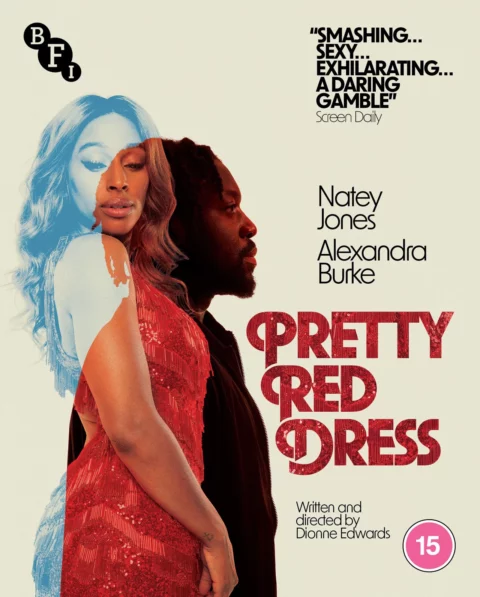 Pretty Red Dress
Pretty Red Dress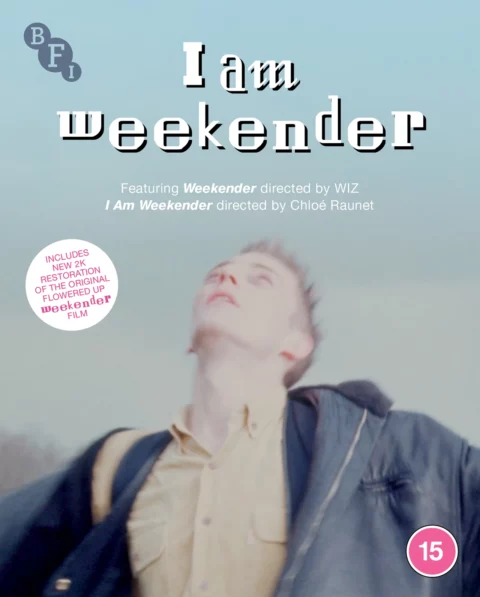 I am Weekender
I am Weekender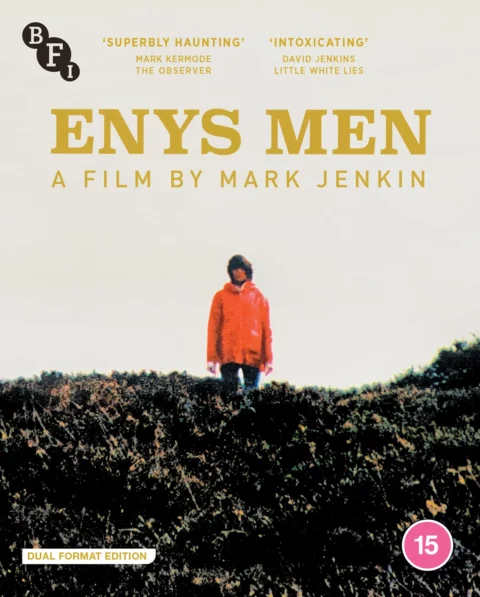 Enys Men
Enys Men La Règle du jeu
La Règle du jeu Dance Craze
Dance Craze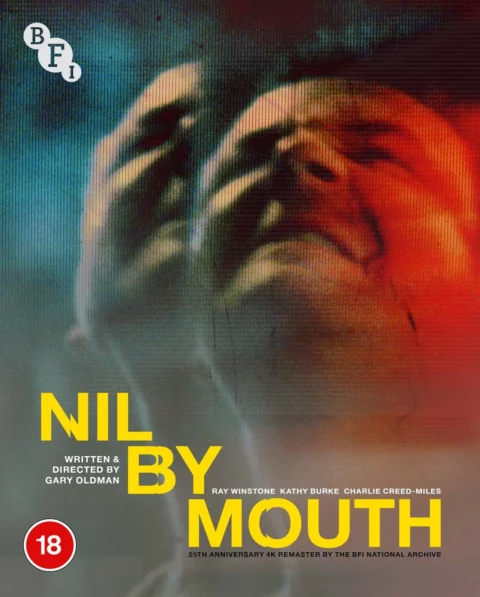
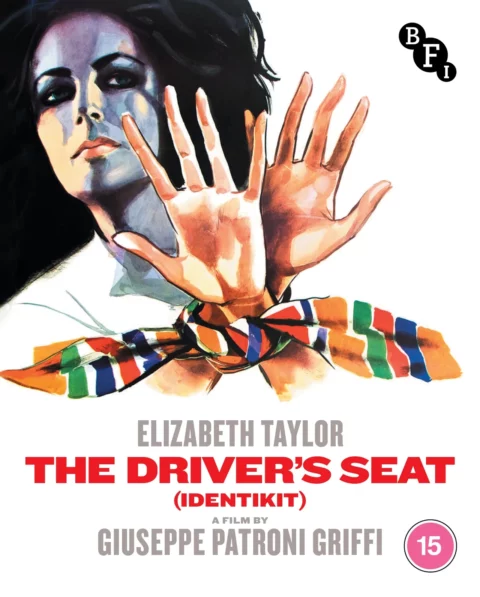 The Driver’s Seat
The Driver’s Seat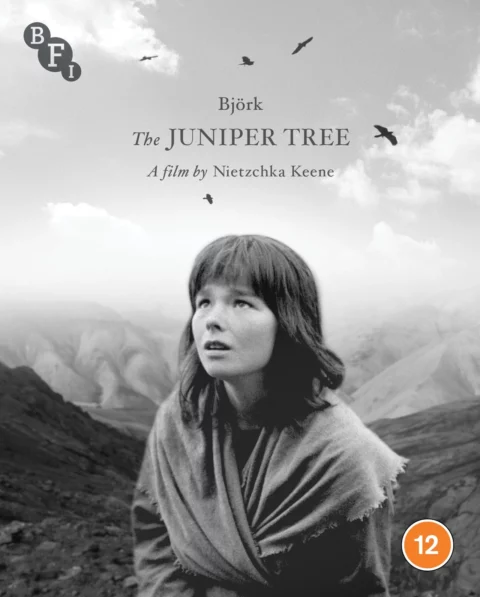 The Juniper Tree
The Juniper Tree EO
EO